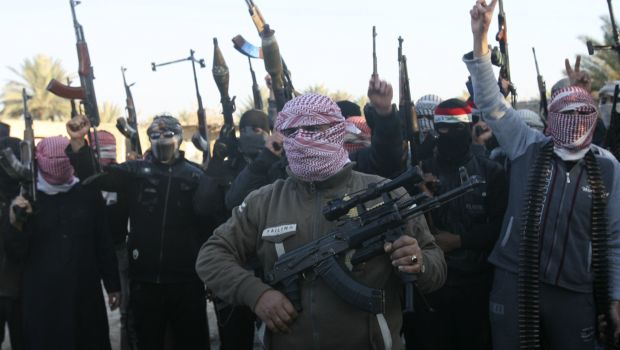Although the Iraqi elections have ended, the situation in Anbar—Iraq’s largest province—is getting worse, according to reports. Fighting has escalated in the city of Fallujah and elsewhere, in places which have not seen peace since 2003. Following the US invasion, Anbar only experienced a short period of calm after Al-Qaeda was expelled from the area. However, it wasn’t long before the group returned to the province.
According to reports, fighting in Anbar has halted Iraq oil exports to Turkey, which amounted to 400,000 barrels per day. The petroleum which the government of Prime Minister Nuri Al-Maliki exports to Jordan—10,000 barrels per day at decreased prices—has also halted. The same goes for Baghdad’s imports, such as vegetables from Jordan, as well as its imports of cement and gypsum. Bandits now control highways in the north and west of the country.
Anbar’s cities are suffering more than Baghdad as the roads to them have been blocked to all except army troops—or Al-Qaeda groups. Anbar’s residents have also been living under a cruel siege for several months.
As to why all of this is happening, it is because the fighting in Anbar is complicated due to the many parties involved in it. Although some claim patriotic motives, most of it is a “dirty” war where there’s neither patriotism nor patriots. Al-Qaeda and its affiliate, the Islamic State of Iraq and Syria (ISIS), have succeeded in dominating vast areas, and they are fighting tribes and government troops, which in turn are fighting other tribes allied with Al-Qaeda. All these have succeeded in achieving only one outcome—the destruction of the area and the displacement of tens of thousands of its people.
Some leaders of fighters in Fallujah and the rest of Anbar who ally with Al-Qaeda and ISIS are wrong to do so because these groups are hostile and are rejected in the entire region, not just in Iraq. The people of Anbar must also recall that the activities of Al-Qaeda—whether the one affiliated with Ayman Al-Zawahiri or with the late Abu Musab Al-Zarqawi—served the agenda of the Iranian and Syrian regimes. Al-Qaeda enabled Iran to dominate Iraq and forced the US to negotiate with Tehran. Then Al-Qaeda disappeared, reappearing later when the Maliki government cut financial support to the Sunni tribes’ Awakening Councils fighting Al-Qaeda in Anbar, leaving the province without protection.
Anbar is now suffering due to the Al-Qaeda criminals and the rebels and tribes allied with them. Add to that the fact that the province is also confronting Iraqi troops and some tribes. No one will win in this war, which may go on as long as the government in Baghdad believes it can solve the crisis through force of arms.
It’s certainly possible to defeat ISIS and the rest of Al-Qaeda’s affiliates, given that the province’s authorities have previously deterred them. This will require the army’s cooperation with the tribes, as well as a political solution that can end the rupture. A political and military solution will make it possible to reopen roads, spur activity in factories, export petroleum to Turkey and Jordan and restore security in Baghdad, which is only a stone’s throw from Anbar.
